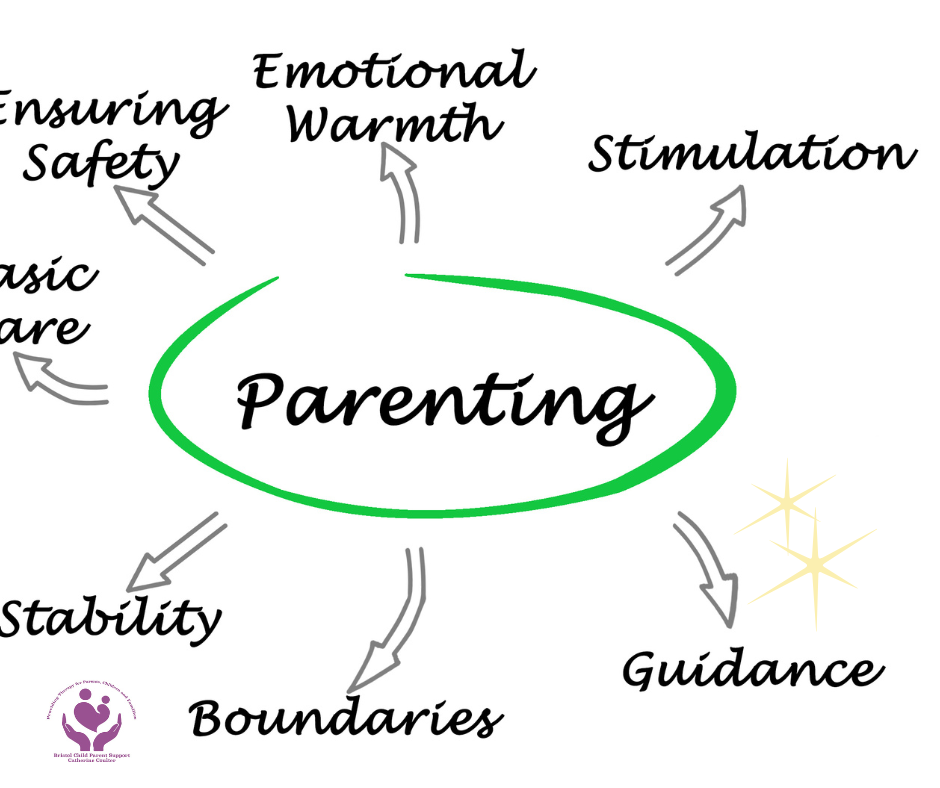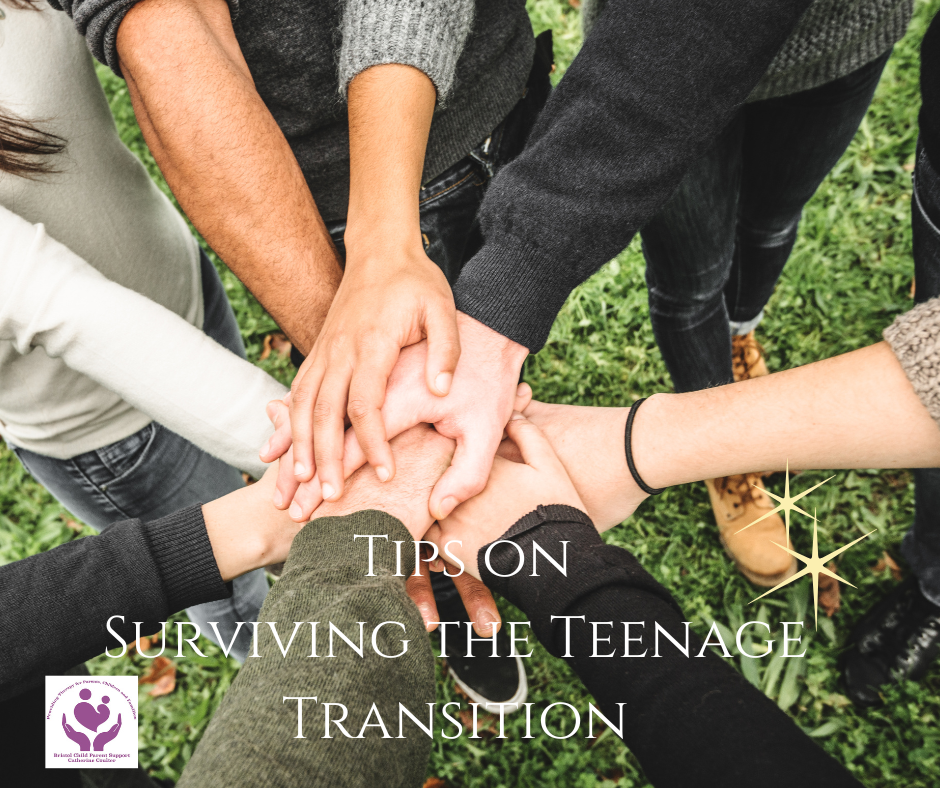- Are you arguing with your teenager over the phone again?
- Do you feel you can not get through to them anymore?
- Do you feel you never find the right words to help your teen talk without grunting and becoming cross?
I remember those feelings. Adolescence is a time of intense emotions, so stress between you is inevitable. Studies have demonstrated the importance of teenagers expressing their emotions in navigating this period of growth. It may be beneficial to consider the categories listed below to find a healthy balance in your parenting..

Don’t lose hope; the journey has bumps and cracks, but each of you will survive and live another day. It can even be a time of transformation, but it rarely feels like that. Here are some ideas with practical neuroscience to help you through.
Why Adolescence is a Time of Transformation
Historically adolescence was seen as a rite of passage. As soon as children become physically mature, boys worked, and girls bore children. Now, adolescence can seem to last much longer, especially if children are at university or still living at home due to difficulties in the cost of living.
It can be tricky to navigate, because saying “no” becomes more complex; how do we set limits, and in what manner? A teenager who feels that limits and boundaries are so fragile that they can knock them over will feel insecure and frightened. On the other hand, if the boundaries are too strong, teenagers can become angry and aggressive towards their parents.
But the main question in a young person’s mind is, “Who am I”? Discovering the “I” often means they have to push against you, reject your opinions and find their way. Unlike younger children, they can walk out and shout back.
Not only is there a developmental reason, but there is also a “neuroscientific one”.
Why parents need to understand the teenager’s brain
A teenager’s brain is the right size and does not grow anymore. However, it goes through tremendous changes, with a significant increase in the frontal lobes and then a lot of pruning. This pruning process begins in the back of the brain and then to the front. The front part of the brain, the prefrontal cortex, is remodelled last. The prefrontal cortex is the decision-making part of the brain, responsible for your child’s ability to plan and think about the consequences of actions, solve problems, and control impulses.
Because the prefrontal cortex is still developing, teenagers might rely more on the amygdala part of the brain to make decisions and solve problems than adults. The amygdala is associated with emotions, impulses, aggression, and instinctive behaviour. This is why teenagers are more at risk of developing mental health issues at this age, combined with less serotonin (happy hormone, more of low mood) and increased dopamine (pleasure-seeking neurotransmitter, seeking more pleasure hits).
So the next time you are angry with them, understand the teenage brain will respond in a primitive way. Therefore, they cannot think and respond rationally or reasonably to you. They may shout, be more argumentative or even more anxious.
Sometimes using the guard dog metaphor for the amygdala response is helpful. The amygdala activates the stress response, which creates:
- Fight– Your child may argue with you or more
- Flight- Your child may storm off
- Freeze/Shutdown– Your child may freeze, or you might notice panic.

What does this all mean for you?
Your child may be more impulsive and take more risks. Some children struggle with this, placing them in dangerous situations.
They may express more and stronger emotions and get annoyed if you ask them to do something. Additionally, you may notice a decrease in empathy, and your helpful and loving child may seem irritable and non-caring. They may only want to be in their room or with their friends, leaving you excluded.

Sometimes you may notice your child’s thinking and behaviour seem mature, but sometimes your child seems to behave, or think in illogical, impulsive or emotional ways. It can feel like they are a toddler again, and parents often feel at a loss in managing independence versus dependency. This isn’t your parenting; it is just a brain thing that will pass.

Tip One-How to use the brain’s chemicals positively
A good relationship and secure attachment to an adult will activate oxytocin. This hormone is a counterbalance to the stress hormone cortisol and works against aggression.
So hug and make physical contact with your teenager. This may be sitting together on the sofa or giving a back rub. We know that when physical affection continues through the teenage years, it protects against adolescent angst. Sometimes your teenager may be reluctant, but it is essential to remember to offer. Don’t forget to say, “That was nice”.
When parents are in repeated conflict with their teenagers, the teenage brain often activates high-stress hormones, leading to anger, anxiety and depression.
Tip Two-Don’t fall into emotive verbal tennis matches (The teenager provokes, the parent reacts and so on).
This is common and will make you both miserable, but more than that, you and they will be experiencing the flight/fight or the shutdown response, and each of you will have cortisol overload. These can be the times that things get physical.

You could say:
I am noticing anger; I will calm down and return in five minutes to deal with this.
Parents often feel pressured to find a solution right in the moment of high reactivity. If there isn’t a safety issue, it is always okay to say:
Thank you for letting me know, I am going to go away and think about this and come back to you
Tip Three-When you want to scream but should try empathy instead
Like you, we have all been there. Like you, there were times when I screamed at my children, but soon realised (my training can come in handy) that I felt awful, and so did they, and it did not affect their behaviour. When you are calm, try empathy and use statements such as:
- “That might make you feel.”.
- “So life feels pretty hard right now; I am here if you want to talk later.”
- “That’s hard when we get excluded from our friends. Is there anything I can do to help”
Tip Four-Try not take it personally.
Most of the time, teenagers ( and children) give us feelings they cannot manage or are even aware of most of the time. You are no longer the gatekeeper, inviting friends or visiting friends and families. They may even be intensely in love with someone you disapprove of,
This can be especially hard if you have felt very close and wonder who this alien is in front of you. Your child may tell you to “butt out” or even say they hate you, say you are useless, weak and more. The best approach is what therapists use all the time. It’s called empathising with the negative transference ( taken from page nine, Helping Teenagers with Anger and Self-Esteem, Margot Sunderland).
So right now, you are seeing me as a controlling and harsh parent…..that might make you feel…..
Using words such as might, maybe, and sometimes can help.
Tip Five-Using Special time with Teenager’s to repair any ruptures and help to develop a secure attachment
You are an essential part of your child’s environment. How you guide and influence your child will be crucial in helping your child manage stress and anxiety later in life. This means spending time with them. Spend regular time listening to your child. I am a great advocate for special playtime with children. It means regular times when your mind is focused on your child. Many clients tell me their child does not want to be with them. Through experience, I know that nearly all teenagers would like and need to experience favourable times with their parents (this is critical for teens whose parents have separated and are with new partners and families). Ask them what they would like to do. Say you want a close relationship, accept that they often want to be with their friends. Try not to be put off; they may test you to see if you mean it. Ideas are:
Go for a milkshake, supper, a walk or a bike ride. Play a game, go and see a film, play cards. Special time needs to occur at least once a week and regularly.
Tip Six-Modeling good conflict resolution
Family meetings are a great skill. Conflict with friends or family is part of life. In almost every family, there are times when we fight, shout and even mock. Modelling discussions and hearing everyone’s views will help your children throughout life. It’s perfect for teenagers.
Many parents only hold family meetings when there is a disaster rather than using them to praise, discuss house rules and problem-solve.
Ideas on how to Implement A Family Meeting with Teenager’s
You can meet weekly or less. Please give them a positive tone by offering refreshments or snacks. Have some pens and paper, and You can initiate a family meeting from age three onwards; 10 -30 minutes should be long enough. Use common sense, and younger siblings may need just 10 minutes. Younger siblings often have important views that need to be heard and can develop interesting solutions. In addition, family meetings can also help father relationships.
When mothers are supportive of their spouse’s parenting (view them as competent parents, provide encouragement, expect, and believe parenting is a joint venture), men are more likely to be involved with and responsible for their children
(Biller, 1993; Coverman, 1985; Cowan T)The Effects of Father Involvement: A Summary of the Research Evidence Sarah Allen, MSc and Kerry Daly, PhD, University of Guelph
1. Set some simple boundaries within the meeting
- No talking at the same time as someone else
- There could be a rotating chair ( age-dependent)
- Someone can write the views and decisions
- All ideas are welcome, listen listen to them
- All opinions are accepted; no mocking or put-downs.
2. Start with something positive:
- What I like about today/week
- The best thing that happened in our family
- What I am grateful for
- What you noticed this week
You can ask what they may want to do together; then, you can start on rules and boundaries.
Tip seven- Implementating boundaries or family rules
Parents find it challenging to balance encouraging independence, family rules and safety. It is essential to have clear expectations. Common hot triggers are time spent online, social media’s impact, being out late, drinking etc.
Online House Rules
Online time and checking what they are doing online. ( I am very strict about this due to my work n CAMHS with children who were cyberbullied and groomed online).
I am perturbed about the impact of social media influencers and the skewed views on eating disorders, self-harm, and suicide, mental health issues and gender issues. Additionally, the amount of pornography and violent images teenagers are exposed to.

Ofcom has recently published research showing that a third of children aged between 8 and 17 with a social media profile have an adult user age after signing up with a false date of birth (new research commissioned by Ofcom (PDF, 992.6 KB). This means they could be at greater risk of encountering age-inappropriate or harmful online content. Even more worryingly, teenagers often see this at night, in their room alone, whilst they are at their most vulnerable and without the balance of a parental perspective. You can hear Kate Winslet’s concerns on the B.BC.
Other suggestions for Rules:
- Tidying their bedroom, helping you clean, helping you prepare food.
- Knowing who and where they are, texting you if they will be late. Having precise times to be home by…
- Regardless of what your child says, you must know where they are and who they are with.
- Talking through What you would do if you found yourself in this situation.
- The ability to say “no” to them is essential if there is a safety concern.
- I can’t let you do that; I need to know you to be safe
It is common for parents to threaten their children at the moment but fail to follow through with the consequences. In a permissive parenting style, teenagers often find themselves in unsafe situations with their peers without knowing how to manage their boundaries. In contrast, tight parental limits can cause anger to escalate.
Tip Eight-How to manage dysregulated, angry or anxious behaviour
Sometimes there are intense and repeated escalations of dysregulated behaviour. Being present, calm, and contained is essential without responding in anger, collapsing or crying.
These reactions mean that you have an amygdala, too. In a Flight or Fight response, cortisol floods our prefrontal cortex, so we lose our capacity to think in those moments. For most of us, when we flip our lid, we gather ourselves and say sorry and reconnect, however when we’ve experienced blocked care as children or suffered from depression and trauma, it might result in parenting that is more than often:
- You versus me, polarised.
- Taking it personally
- Defensive and misreading the context of the interaction. (Don’t look at me like that, stop attacking me, etc.)
- In survival mode, you are flipping your lid all the time.
- No reward, parenting is heavy all the time ( Daniel Hughes)
I had to learn how to respond when working with teenagers in an inpatient unit. In moments such as these, I find it helpful to follow Dr Bruce Perry’s three R’s:
- Regulate, Stay with the feeling just by being present; sometimes, you can touch or hold them. Not all teenagers like this, but as I have said, physical touch is still essential.
- Validate their feelings; I know you might be outraged now. Use words such as sometimes, maybe, and I wonder to help.
- Reason, This is not always appropriate at that moment, wait, let them calm down and then discuss the next day or in a couple of hours.
Create a plan
Ask your teen if they can find another way and help create a plan for these moments before it happens again. Life always brings challenges, and learning to manage them is a good life skill that will serve young people well for years. Many parents have not had big feelings modelled in their childhood, so we may be surprised when we are triggered. Find a good therapist who can help you with your conditioning.
Dont forget Teenager’s sleep!
Sleep is a significant issue for teenagers; they become owls, are online often, and like to drink lots of caffeine, such as Red Bull or Monster. Red Bull has nearly just as much caffeine as coffee. Caffeine is one of the most significant contributors to sleep disruption. It affects the sleep-promoting neurotransmitter called Adenosine. Lack of sleep creates social jet lag.
What is Social Jet Lag
Social jet lag, a term coined by German researcher Till Roennenberg in 2006, is the discrepancy in a person’s sleep pattern between the weekday and the weekend, which can cause a person to feel “jet-lagged” and exhausted.
While social jet lag can affect anyone, the problem is widespread among teenagers. Teenagers are biological “night owls” who tend to sleep and get up late when schedules permit, such as on weekends or holidays. The problem arises when they are expected to sleep and get up early for school on weekdays.
Two forces determine when we are awake or asleep at any point in time. The first is how long we’ve been awake. The longer we’re awake, the more tired we feel, and it’s easier to fall asleep.
But, another one forces us awake during the day, which opposes that sleepy force or sleep debt that is building up. This is called our internal body clock or circadian rhythm. Dramatically adjusting the circadian rhythm confuses the body and brain – no longer knowing what time to go to sleep and what time to get up, which makes us feel horrible.
What Can you do for Social Jetlag?
- Wake your teenager up at the same time every day.
- Be consistent ( Consistency is the biggest thing. Even if your teen stays up later on the weekend, they should wake up within an hour or two of when they usually get up during the week. If your child gets up at 6 a.m. for school, they should be out of bed by 8 a.m. on Saturday and Sunday).
- Get out in the morning light ( it doesn’t matter if it is cloudy)
Summary of tips to connect with your teenager
Let your child take some healthy risks. New and different experiences help your child develop an independent identity, explore grown-up behaviour, and move towards independence.
Help your child find new creative and expressive outlets for feelings. Your child might be expressing and trying to control new emotions. Many teenagers find that doing or watching sports, music, writing,g and other art forms are good outlets.
Plan and then talk through decisions and implement family meetings. Ask about possible courses of action your child might choose and discuss potential consequences. Encourage your child to weigh up positive consequences or rewards against negative ones.
Provide boundaries and opportunities for negotiating those boundaries. Young people need guidance and limit-setting from their parents and other adults. This may be important for the use of screens.
Dont take it personally.
In Conclusion
Adolescence is a time of transformation. As I know, we also have to change. Teenagers need to feel secure within the home and have a safe base to separate from and find themselves. Most of their rebelliousness and defiance is about wanting to be separate. This is in combination with brain and hormonal changes. Sometimes, it will lead to you and them feeling misunderstood and unloved. But this struggle helps them feel confident and creative to enter the world independently.
Remember: parenting is hard work, and you all deserve support. And when it all starts to feel impossible, ask for help. If you need help and support, contact me for a consultation or do join my newsletter community. With Gratitude, Catherine.
If you enjoyed this blog post and found it helpful or inspiring, please share it with your friends on social media by clicking on the icons on the side. Thank you for visiting my website!



